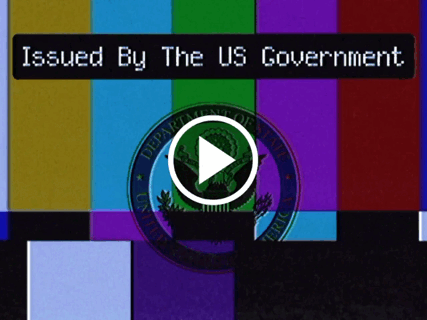The media climate, like our planet’s, is heating up with a significant swell of questions and skepticism regarding the impending ‘climate emergency’ and the Net Zero initiative. Broadcasters at GB News are spearheading this wave of uncertainty, much to the consternation of green activists and the Guardian. In a shocking revelation, the climate ‘blacklist’ site, DeSmog, has conducted an extensive online footage investigation, concluding that the majority of GB News journalists present a skeptical attitude towards the impending ‘climate disaster.’ Green MP Caroline Lucas calls out the “truly toxic misinformation” on GB News, urging Ofcom to investigate these potentially dangerous claims.
A Brewing Storm of Skepticism
DeSmog’s findings uncovered that over half of GB News presenters were skeptical of the U.K.’s climate policies last year, including the ‘Net Zero 2050’ target. The Guardian took note of these findings, highlighting that several presenters questioned “widely accepted scientific findings.” This dissent may seem odd, as attributing individual bad weather events to long-term climate changes is regarded as pseudoscience by many.
The reliance on computer models and hypothetical atmospheres for these conclusions raises eyebrows, fueling the skepticism.
Viral Content: Brace Yourselves… A Storm is Coming! You Just Have to Know Where to Look!
Renowned science writer Roger Pielke criticizes the hasty attribution of extreme weather events to human-induced global warming, a theory that has taken the center stage in the past two decades. Pielke’s assertive statement – “I can think of no other area of research where the relaxing of rigour and standards has been encouraged…” – underscores the uneasy feeling many are grappling with in the wake of the ‘climate emergency’ narrative.
Polarizing Personalities and Polar Bears
Neil Oliver, known for his engaging monologues, is among those singled out for criticism. He stirred the pot by asserting that polar bears are thriving and Antarctica’s ice sheet is thickening – claims that are seemingly supported by recent surveys and scientific studies. However, Oliver’s contention that green policies are contributing to a “hellish potpourri of policies guaranteed to condemn hundreds of millions to death by poverty, death by starvation” was deemed a “conspiracy theory” by DeSmog.
The skeptical, however, might see this as a fair comment on a potentially disastrous political agenda.
Also Read: Ignored Facts and Missed Lessons: A Critical Review of Politicians’ Response to the Pandemic
Turning up the Heat on Climate Reporting
GB News isn’t alone in this climate of skepticism. Over on Talk TV, presenters are openly questioning climate policies and the role humans play in the crisis. Journalists are doing what they do best – asking questions, inquiring, debating. And in doing so, they often uncover a story that’s more nuanced and compelling than the established narrative.
Some media companies are cognizant that skepticism about Net Zero and the climate catastrophisation that promotes it is gaining ground in the wider population. The Daily Sceptic recently reported that climate skepticism was on the rise worldwide, as people start to grasp the effects of the looming Net Zero disaster.
A survey by the University of Chicago revealed that belief in humans causing all or most climate change had decreased in America. A significant global Ipsos survey mirrored these findings, with nearly 40% of respondents believing that climate change is primarily due to natural causes.
A Silver Lining for Skeptics?
Interestingly, the Chicago survey also found climate skepticism increasing more rapidly in left-wing Democrat circles than among Republicans, and a significant drop in support for human-caused climate change among young people aged 18-29. This growing skepticism might worry media outlets like the BBC and the Guardian, with their steadily shrinking audiences.
“Better to be afraid and prepared, than happy and dead.”
In the face of these unsettling revelations, one thing is clear. The climate of ‘climate disinformation’ is reaching boiling point in the media, with many journalists questioning the established narrative of an imminent climate catastrophe. This rising skepticism could serve as a reminder that healthy questioning and debate are essential components of democratic discourse.
This is a story that is far from settled and is one to watch as we navigate the complex terrain of climate science, media skepticism, and the ever-present need for verifiable truth.





